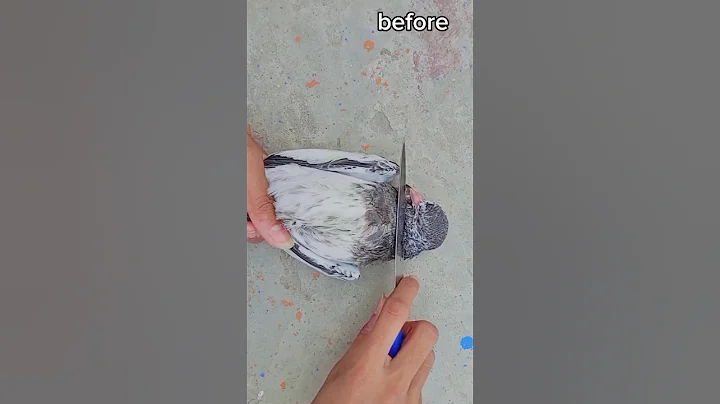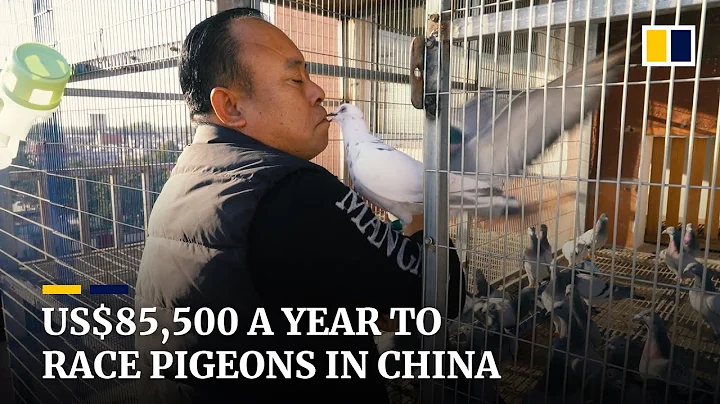
It is said that Professors Jules de Ledet and Van Graembergen taught many fanciers how to manage and fly pigeons successfully. The pair from Ghent have had many outstanding achievements and we believe it will take a lot of time to improve upon their fantastic results again.
Professor van Gleimbergen is a professor of zoology at the Ghent State University. He knows how to treat sick pigeons and how to prevent them from various diseases. He gave some constructive advice to many fanciers.
It would be difficult to find a better partner for Jules de Ledet. Together they had their greatest success. We remember that they had won the first and second place in the Barcelona International Race, and they were won by the same pigeon. Such an achievement is something people will never forget. This is the best score I've ever heard.
Their greatest success was second place in the Brive race, 675km, and the Copa del Rey. The first prize was won by the fifth nominated pigeon of Daniel van Schulebroeck, but the King's Cup can only be won by the first nominated pigeon.
The partnership broke up in 1975 and all their pigeons were sold at an auction. The Copa del Rey winner was sold for 205,000 Belgian francs to Lucien Denouy and José de Fortig of Belgium.
Here is Professor van Graembergen’s introduction to his method:
We gave him a list of questions and the way he answered them will give all readers of this article some excellent advice .
Q: How do you prepare your racing and breeding pigeons, are you planning to use early breeding? Will there be some treatment for future breeding pairs? What to treat? When to treat?
A: We never do early breeding. For the racing bird and the breeder , feeding is a gradual change from a winter mixture to a lactation mixture. The winter mix we use now is a wholesome and wholesome mix, not as light as it used to be. A few days before putting the pairs together we give them some vitamins , mainly vitamin D.
(good for hens) Trichomonas prophylactic treatment is carried out during the racing season. This treatment should not be repeated for pigeons specially intended for breeding.

Q: How to feed breeding pigeons?
A: For pigeons specially bred for breeding, give them the same economical mixture throughout the year, consisting of 25% beans, peas and vetch. We never let them lack food, they always get more than they need.
For those racing pigeons that are allowed to breed some young birds, the feeding must be different, they get the same mixture, but very economically.
We feed twice a day, at 8 am and 5:30 pm... Sometimes the business environment changes, but it doesn't matter. When the youngsters are 10 days old, the parents are given an extra handful of beans in the afternoon.
Q: Do you put vitamin-fortified minerals, vegetables and vitamins in the drinking water or food of early breeding pairs? Or add some kind of disinfectant to drinking water?
A: This question has nothing to do with us, but we do not add any of the above substances, we do not trust them, the pigeons usually look for minerals themselves.
Q: When should early-bred young pigeons be weaned and what mixture should be given to them? Will the second and third round of youngsters live in the same loft as the first round of youngsters or in separate lofts?
A: Regarding feeding, they can only eat beans for the first three days after weaning, then regular or game mix. In the racing loft, 5 to 10 young birds will join the first round of racing pigeons every year.
We pay special attention to their health, otherwise diseases are inevitable. we pay special attention to trichomonas . For us, all young birds, whether for storage or for sale, must stay in the breeding loft with their parents. They always cause a lot of trouble and increase the danger for the young birds. We regard this as our first choice.
As a side note, for our partnership, De Ledet is responsible for the management of the racing pigeons, and Van Graembergen is responsible for the breeding pigeons and reserve young birds.
Q: Can the young birds bred early go out at a certain time every day? Do you ban them from flying?
A: When I breed early brooders I definitely keep them in the open loft after breakfast all day. But everyone has their own understanding of this. People must consider the dangers of loitering on decks and roof gutters. The best method in our opinion is to give them freedom while they fly around the loft, one hour in the morning and one hour in the afternoon.

Q: Are the male and female pigeons of young pigeons separated? When to separate and for what purpose? Do they practice widowhood or naturalism?
Answer: We cannot separate the male and female pigeons because we do not have enough lofts. There's something exciting about taking them apart and getting them back together again. But on the other hand they didn't play very well in the first few games. As the season approaches, the distances start to get longer and the differences become smaller. We have proven over the years that it is possible to race unpaired and unstimulated young birds, especially in long distance races.
We do not tempt young birds to pair up, but if they pair up with each other then we do not break them up, we only prevent them from laying eggs. When we do the last few races (Bourge, Angoulême) we usually pair up the young birds.
You can enter unpaired young birds. We have confirmed this with an unpaired hen (she had not been paired in September). It won the Argenton Regional Championship, Provincial Championship, Inter-Provincial Championship and 5th National Championship.
We don’t use tricks, the only trick for is to try to stop the hens from laying eggs by placing fake eggs in the nest boxes.
Our best results were achieved when the male and female pigeons were in the nest. We sometimes achieve top results with young birds that we have just started pairing. (Especially the hens)
No matter what, don’t be afraid to race your young birds every week. You can start racing them every week starting with the Dudan or Orleans events.
Q: Do you pay special attention to the feathering condition of your young birds during racing? Are the best young birds also the best old birds?
A: Because we never enter for the grand prize, we don’t pay attention to the condition of the feathers. We are not afraid to send them into competition when their head and neck are moulting or when their tail only has two flight feathers. Of course one cannot expect too much from the pigeons when they are in this state.
Since we do not breed early youngsters, we can do this in other ways.
In other words, if we had to pay attention to the condition of the feathers, half the time we wouldn't be flying any pigeons. In that case we would send them to race while they are raising their youngsters. That's usually in late August or September.

Q: Do your young birds receive some vitamins, vegetables, special grains, teas, disinfectants or other products during the racing season?
Answer: Yes, a responsible mixture; no vegetables, give some extra substances (grape seeds and hemp seeds) from time to time; twice a day.
Never tea or sanitizer. From time to time (about a month), drugs to prevent trichomonas and coccidia will be added to the drinking water. All young birds will be vaccinated against pigeon pox when they are 6 weeks old.
Q: Do you pay much attention to the pedigree of the young birds? Were your best young birds in earlier seasons your best old birds?
Answer: Bloodlines are of great value.
The foundation of the pigeons: some pigeons were obtained from C. van der Linden in 1951 and 1952, and then in 1955 from Andre vanbruane Some.I paired one of his cocks with two different hens; during this time I did not bring back an unfamiliar pigeon. I continued to build my own team with my own pigeons.
1968 and 1969 I crossed these pigeons with some other pigeons. The main breeders are: "Old Fox" (1951); "Raindrop" (1951), which bred the "Rainpoint Male", which was then paired with the "Rainpoint Female" to produce the famous "Barcelona" (1958), which was 2nd International Barcelona in 1962 and 1st International Barcelona in 1964.
To add, other young birds were not tested in this way, but were stopped early. .
We send young birds to their first race not with the hope that they will win but to train them for long distance races
I like to see a pigeon perform in any weather condition. The first thing that makes me decide is that the pigeons come home from the races like fresh daisies and recover very quickly.
The best young bird is not necessarily the best old bird, especially when it is an early bred young bird, because they fly beyond the real sporting value, usually most of them are paired early and are subject to various tricks The temptation. For those young birds bred during the normal breeding season, they are usually more valuable and people can place more hopes.
END
Text by Jules Gales Translation: Bai Xiaojie
[Smile] Thank you for reading! You can add followers to this account, please like and comment for encouragement, see you in the next article






















